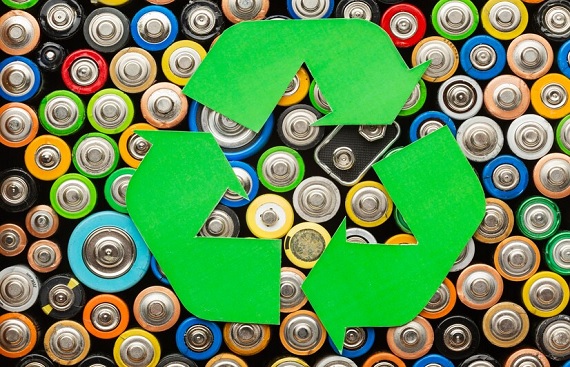Centre to Establish Li-ion Battery, E-Waste Recycling Plant in Uttarakhand
By
siliconindia | Tuesday, 02 April 2024, 18:10 IST

In a significant move to address the pressing issue of electronic waste (e-waste) and lithium-ion (Li-ion) battery recycling in India, the Technology Development Board (TDB), a part of the Department of Science and Technology (DST), has announced a strategic partnership with Remine India, a startup, to establish a commercial recycling plant in Uttarakhand. This initiative aims to leverage indigenous technology to tackle e-waste and Li-ion battery disposal challenges.
Under the recently signed agreement, TDB has committed financial assistance of  7.5 crore towards the total project cost of
7.5 crore towards the total project cost of  15 crore. The establishment of this recycling plant, to be located at Eldeco in Sitarganj’s SIIDCUL Industrial Area in the Udham Singh Nagar district, underscores India's commitment to sustainable waste management practices.
15 crore. The establishment of this recycling plant, to be located at Eldeco in Sitarganj’s SIIDCUL Industrial Area in the Udham Singh Nagar district, underscores India's commitment to sustainable waste management practices.
 7.5 crore towards the total project cost of
7.5 crore towards the total project cost of  15 crore. The establishment of this recycling plant, to be located at Eldeco in Sitarganj’s SIIDCUL Industrial Area in the Udham Singh Nagar district, underscores India's commitment to sustainable waste management practices.
15 crore. The establishment of this recycling plant, to be located at Eldeco in Sitarganj’s SIIDCUL Industrial Area in the Udham Singh Nagar district, underscores India's commitment to sustainable waste management practices.
Rajesh Kumar Pathak, Secretary of TDB, emphasized the importance of addressing e-waste generation, with India ranking third globally in this aspect. He highlighted that TDB's support for such initiatives would foster the integration of informal recyclers with formal recycling processes, thereby promoting a circular economy.
The recycling plant will utilize indigenous technology developed by the Centre for Materials for Electronics Technology (CMET), Hyderabad, to efficiently recycle Li-ion batteries. This technology holds promise in providing secondary raw materials for cell manufacturing within the country, reducing the reliance on imports and contributing to self-sufficiency in this critical sector.
The Ministry of Science & Technology stressed the urgency of recycling initiatives in the face of mounting e-waste volumes, driven by the proliferation of Li-ion batteries in various applications including portable electronics, electric vehicles, and renewable energy storage systems. The ministry highlighted the environmental and safety concerns posed by improper disposal methods such as landfilling and incineration.
Furthermore, the ministry underscored the economic potential of Li-ion battery recycling, with the market projected to reach $14.89 billion by 2030. Despite this growth, the current recycling rate remains low, with only 5% of Li-ion batteries undergoing recycling and reuse.
Addressing the dominance of the informal sector in e-waste management, the ministry emphasized the need for efficient and environmentally friendly recycling methods. Such measures are crucial to mitigate environmental risks, reduce carbon footprints, and ensure sustainable resource utilization.
Read More News :
